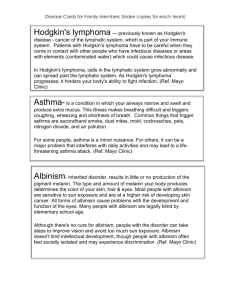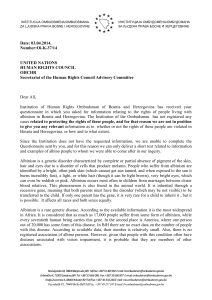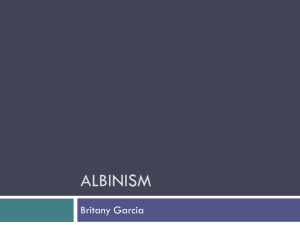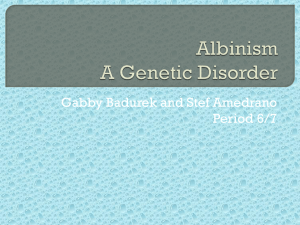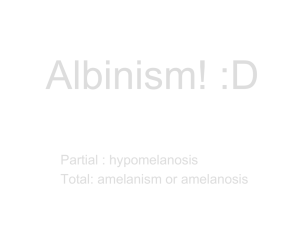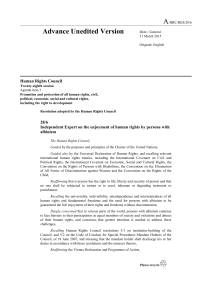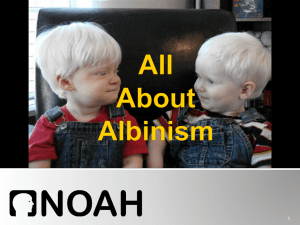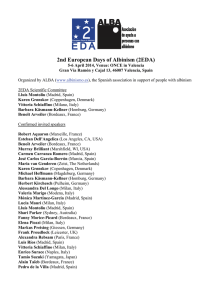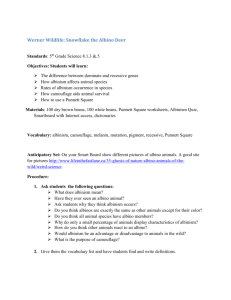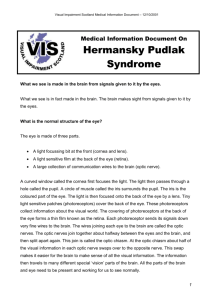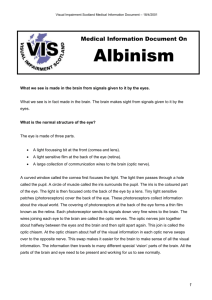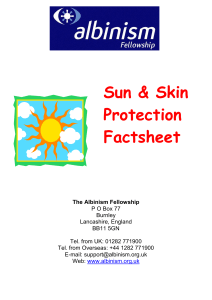Albinism - andoverhighanatomy
advertisement
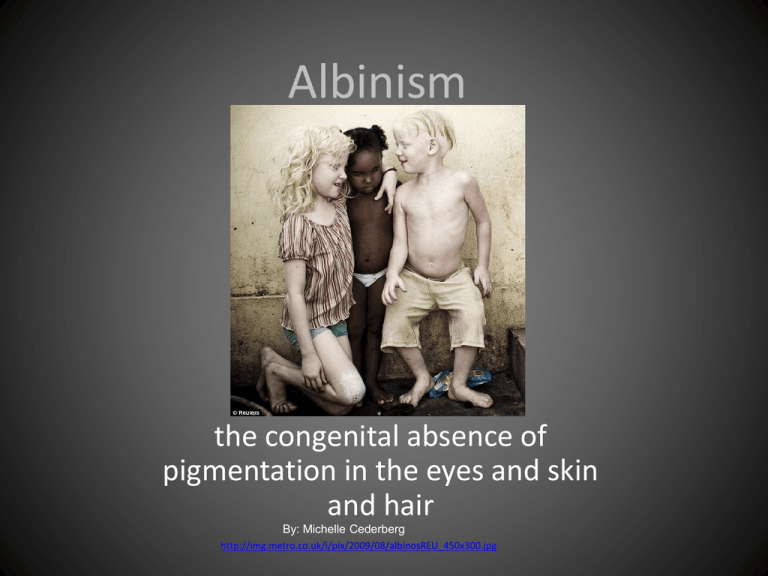
Albinism the congenital absence of pigmentation in the eyes and skin and hair By: Michelle Cederberg http://img.metro.co.uk/i/pix/2009/08/albinosREU_450x300.jpg Some facts about albinism • It can effect plants, animals, and people • Sometimes the eyes appear pink because of a reflection the retinas • Albinism is more prone to males Cause of Albinism Albinism is due to a defect in the "P" gene. This results in little or no melanin pigment produced. In most cases the mutated gene must be given from both parents This affects the hypodermis layer of the skin where the melanocytes are located. http://www.maharshiclinic.com/images/hypodermis.gif Types of Albinism • Oculocutaneous albinism type one- mutation on the chromosome 11. Many with this gene have white skin and hair with blue eyes at birth and can later begin producing melanin. • Oculocutaneous albinism type two- mutation on the chromosome 15. Skin appears a little lighter than family members while the hair may be yellow, auburn, ginger or red with blue-gray or tan eyes. This type is more common in the Sub-Saharan Africans, African-Americans and Native Americans. • Oculocutaneous albinism type three- mutation on the chromosome nine. Most common in black South Africans. The skin looks reddish brown with ginger hair and hazel/brown eyes. • Oculocutaneous albinism type four- mutation on the chromosome five. Very rare and occurs in Asian descent. It shows symptoms/signs of type two. Types of Albinism (cont.) • X-linked ocular albinism- mutation on the x chromosome. Occurs in males. Men with this albinism have developmental and functional vision problems while the skin, hair, and eye color are all normal. • Hermansky-Pudlak syndrome- rare form of albinism due to a mutation on one of eight genes. It shows the same signs/symptoms as Oculocutaneous albinism but also may develop lung and bowel diseases and bleeding disorders. • Chediak-Higashi syndrome- rare form of albinism due to a mutation in the LYST gene. Same symptoms/ signs as Oculocutaneous albinism but people with this this syndrome have a defect among white blood cells, resulting in a higher chance of getting infections. Symptoms • Little to no pigmentation in the hair and skin (ranging from white to brown) • Lack of pigment in eye (light blue to brown and occasionally pink and purple eyes) • Vision impairments such as irregular eye movements and astigmatism • Light sensitivity to the point of discomfort http://whisperywind.files.wordpress.com/2013/04/alb-model.jpg http://intertwinedlove.files.wordpress.com/2010/04/4023509880c7746dba0yn5.jpg Cure of Albinism There is no known cure for albinism. However, extra measures can be taken to momentarily relieve some of the symptoms. These include: • Wearing sun screen • Covering exposed body parts with long sleeves/pants • Covering the eyes when outside Worst Case Scenario Without extra measures being taken to protect the skin and eyes different scenarios may happen such as: • Skin cancer • Sunburn • Worsened eyesight • Higher risk of melanoma Works Cited • • • http://www.nlm.nih.gov/medlineplus/ency/article/001479.htm http://www.mayoclinic.com/health/albinism/ http://www.visionfortomorrow.org/albinism-faqs/
